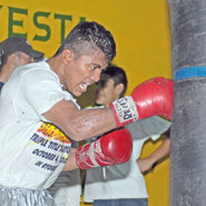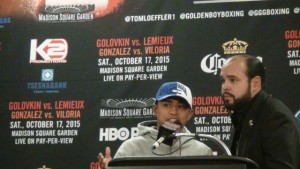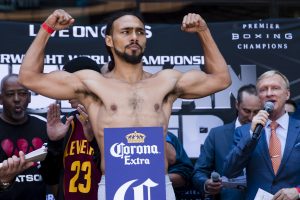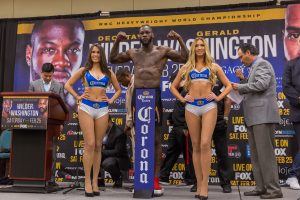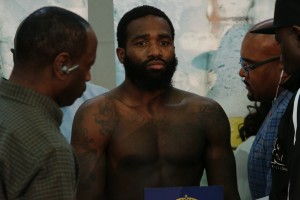Trying to give N’Dam about Ryota Murata
By Bart Barry-
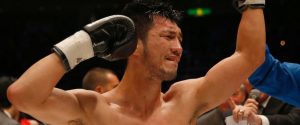
Early Sunday morning on ESPN2 a fight for a middleweight title of some sort featured Japan’s Ryota Murata and Franco-Cameroonian Hassan N’Dam in a rematch of N’Dam’s evidently damnable decision victory over Murata in May. This match was another installment of promoter Top Rank’s fledgling union with ESPN, and if the union’s premier match, Manny Pacquiao versus Jeff Horn, happened on a Saturday during primetime, Murata-N’Dam’s happening on a Sunday during predawn felt right, too, when N’Dam and/or his corner surrendered to Murata’s mechanical attack just before round 8 could begin.
As sports and the shortsighted greed of their managers get moved by television from entertaining contests to mere entertainment assets – some combination of superhero movies and reality-television series, something increasingly interchangeable with professional wrestling – obedience to narrative becomes important as authenticity of spectacle. Murata seems to be wrapped in a narrative driven by promotional desires to monetize what Pan-Asian interest Manny Pacquiao catalyzed.
The opening three rounds of Sunday morning’s contest, as an example, saw him confront N’Dam’s ineffective aggressiveness with what one might call effective inaggressiveness, doing not particularly much while preventing particularly much from being done to him. Somehow those rounds were supposed to be autoawarded to Murata, with the chastening and rare event of a twojudge suspension after the first N’Dam-Murata fight ensuring no close round should go to anyone but Murata. Well, OK.
What professional wrestling began – and, lo, there are plenty of us still alive who remember serious debate about whether those results were rigged – and professional basketball followed is now a growing part of professional football and hockey. While the timing and nature of NBA foul calls have been suspect for at least 25 years, the NFL’s and NHL’s separate pursuits of suspenseful endings now court a similar disbelief in their fanbases, a disbelief deliciously undermined by the use of instant replay.
At least a halfdozen infractions occur away from the ball on every single down of a football game. Only the most egregious get called in the first two or three quarters of games. Forever this has served the continuity and flow of the game; if you call every infraction you turn football into fútbol, with its comely diving and unmanly theatrics, and nobody wants that. But now it serves an additional and different purpose: Increasing the number of choices an intentional official has for intervention in games’ decisive plays by increasing the probability more fouls are committed by players whose transgressions have gone unnoticed for most of the game (and most of the history of the game).
Fans react with indignity if yellow flags begin to fly on nearly every play of the final two minutes of close or closing games, but then a telecast can helpfully switch to a plethora of camera angles and replays to prove that, yes, the defensive end did in fact contact the tightend’s jersey for a twosecond or so, and since rules are rules no matter how much it hurts to admit – defensive holding! Since no replays are available for the other dozen times the same thing happened in the first half, uncalled, and since suspense is necessarily high, we’re told it was a mental error by the penalized player, understandable if intolerable, and we accept it as a tariff charged us for having one unbelievable finish after another unbelievable finish after another unbelievable finish, to include the most unbelievable comeback in Super Bowl history.
And that word and its many pronunciations, UN-believable / unbeLIEVable / Un. Be. Liev-able, and its durability, may just be more than what witlessness jocks-cum-commentators generate across the universe of athletics. Perhaps the commentators are selected by name and excitability, but the fans aren’t, or at least not exclusively so – lots of intelligent people watch football and hockey and basketball and tolerate the soundtrack of unbelievables because the word fits well how their collective subconscious reacts to most of those unbelievable plays and outcomes. They are in fact not believable.
Boxing and baseball, for being caught rigging results at least a halfcentury before other sports got in on it, have relied more on narrative and performance-enhancing drugs for their ratings this era. Creative nonfiction, though, can only be so creative before it becomes fiction. Much of HBO’s 24/7 series tightroped its way through this for 10 years, planning spontaneity and scripting improvisation, while Showtime’s (Emmy-winning) All Access novelas with Floyd Mayweather captured the surreality of Money’s lifestyle by being themselves surreal. A comparatively tiny few of us criticized this conversion of bloodsport to infomercial, and journalism to entertainment vehicle, while industries far and wide fixated on what effective marketing this brand of storytelling happened to make, until it became so pervasive th’t today one feels like a prig for making a point of its deep inauthenticity (in his madcap scramble for 1,000 weekly words).
That same creeping sort of feeling happened Sunday morning as Murata knuckleraked N’Dam’s brainstem and pistonstroked his chin to an unsatisfying corner stoppage: This guy isn’t that good, is he, and nowhere near what they’re telling me he is. Since ESPN’s lead boxing commentator pledges fealty to none but the voices in his own head, one suspects the Murata manufacture will go more Shimingly than Golovkinly, as it were; Teddy means a hell of a lot less to ESPN than Jim and Max and Roy mean to HBO, and he’s accordingly more apt to betray his network’s prewritten narrative.
Such is the risk Top Rank took when it departed its symbiotic if suddenly miserly HBO host for a network that broadcasts Top Rank stars as time allows (Sunday morning at 7:15 during football season). Still, Top Rank and Murata are wise to take this finagled timeslot on a new network – especially when one considers how Murata’d likely fare against HBO’s GGG, Canelo or Miracle Man.
Bart Barry can be reached via Twitter @bartbarry

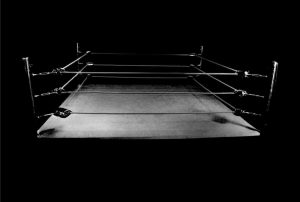

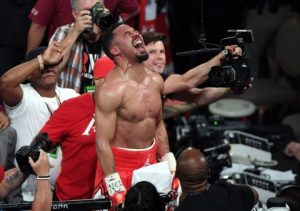
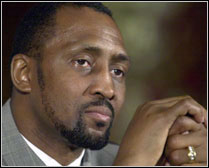
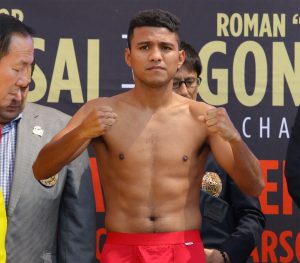
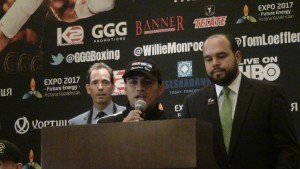
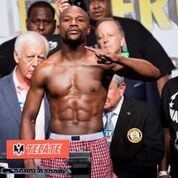
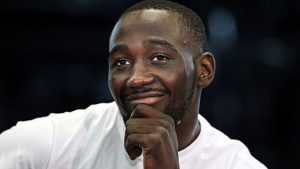
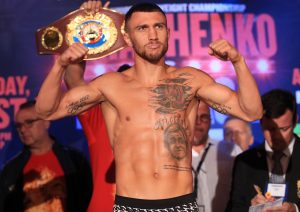
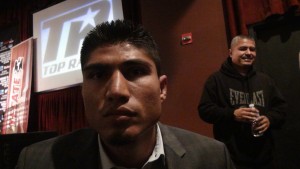
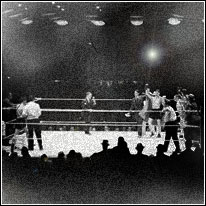
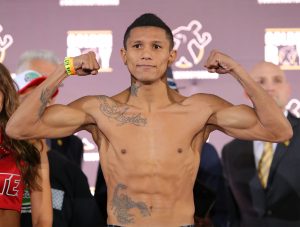
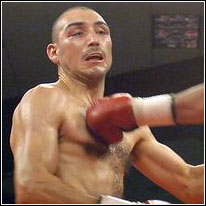

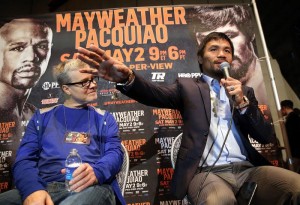
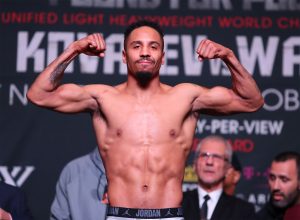
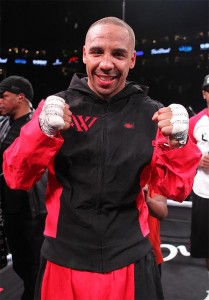
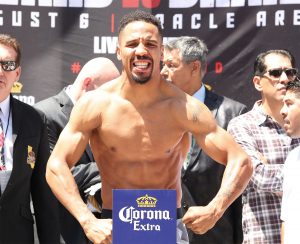



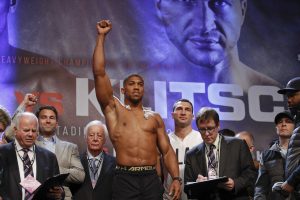
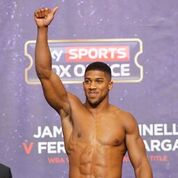
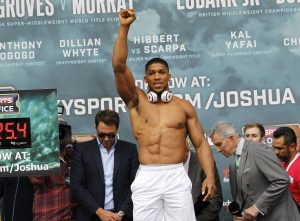
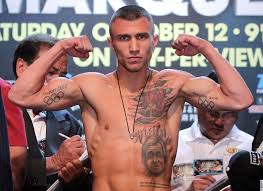
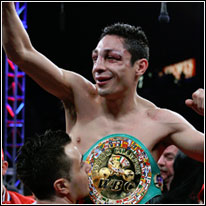
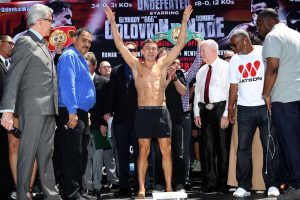 — Photo Credit : Chris Farina – K2 Promotions
— Photo Credit : Chris Farina – K2 Promotions